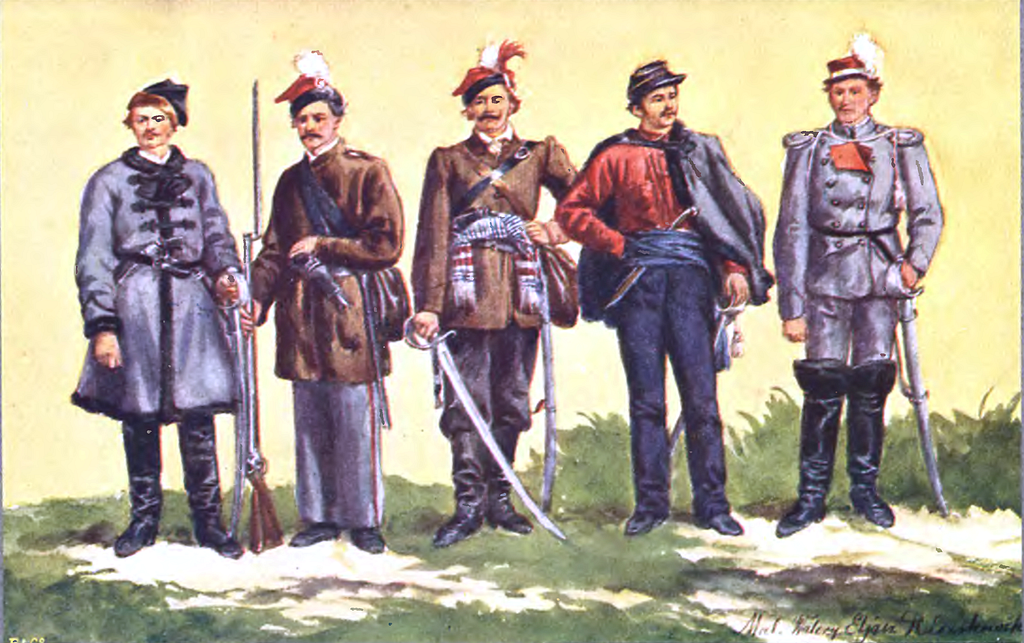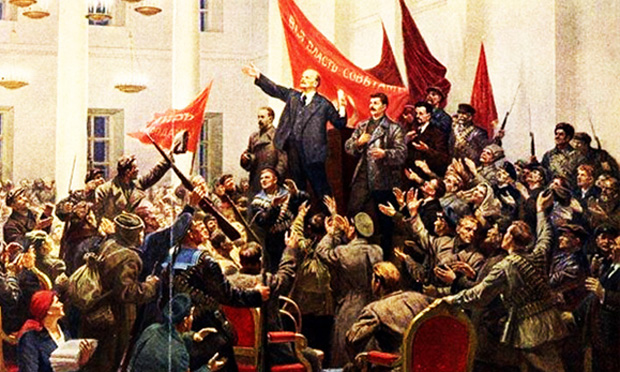Photo AI
Last Updated Sep 26, 2025
Opposition Simplified Revision Notes for A-Level AQA History
Revision notes with simplified explanations to understand Opposition quickly and effectively.
405+ students studying
Opposition
📌 Opposition under Alexander II
Why was there opposition?
- Failure of the reforms
- Created more intellectualism and so people were evaluating the political position
- Judicial reforms created own reform and debate
- Zemstva gave forum for debate
- In response to repression
- Most were stimulated by positive reform
Liberal opposition
Westernisers
- They wanted to copy western ways as they developed more
- Many zemstvo wanted national assembly
- Loris-Melikov assembly, he was about to create national assembly but he died that day
Slavophiles
- Believed Russia had unique culture that should be preserved
- Wanted to reform but not like the rest of Europe
- Russia was superior
- Tolstoy was a lead in this
Radical opposition
Young Russia – set fire in shops – destroyed 2000
Multiple attempts to kill Alexander

Polish insurgents of the revolt
Polish revolt – 1863-4
- Poland fallen under power of the tsar in 1815
- Not part of empire – hand minimal autonomy
- Poles rebelled against Nicholas I but failed
- Freedoms reconstructed
- Recessions made to poles when he becomes tsar
- Ambition for independence so strong so gestures weren't enough and those Polish nationalism continued to grow
- Armed rebellion in 1863 and lasted a year
Repressive aims
- 1864 AII abandoned reformation attempts
- Continued to restrict polish nationalism
- Seizing of property
- Used Russian as language of government
- Beginning of russification in Poland
Populism (Narodniks)
- Aimed to mobilise peasantry
- Led group of 2000 young people mostly from noble background
- Attempt to educate and inspire peasants
- But they didn't understand the ideas of populists
- Most populists arrested
- Second attempt to 'go on the people' but wasn't successful
The Tchaikovsky circle
- Set up in 1868 in St Petersburg
- About 100 people
- Literary society distributing information like Marx's Das Kapital
- From 1872 began organising peasants in countryside
Land and Liberty
- More radical group set up
- Tried to live along the peasants for longer and be accepted by them
- Anarchist ideas and attack tsarist system by assassinating people
- Assassinations made and there was support for them which worried the tsar
The peoples will
- Black partition wanted to live and work with peasants
- Peoples will were violent and tried killing the tsar – multiple attempts made
Opposition under Alexander III
Aims of opposition before 1904:
- The main aim was a national assembly to influence the decisions of the government
- Abolition of corporal punishment
- Extensions of primary education
- In 1896 tried to set up the All zemstvo organisation to represent the views of the Zemstva across Russia - Immediately banned by the government
- 1900, the government ordered the dismissal of hundreds of liberals from the zemstva - Stimulated liberal opposition
- 1903 they came together to form the Union of liberation
- Argued for a peaceful evolution in Russia to a constitutional system
Alexander III led a nationwide police offensive which resulted in the arrest of 10,000 and saw a crackdown on any revolutionary activity.
Despite the repressive atmosphere, revolutionary parties remained present representing socialist views on behalf of the workers and peasants. The measures imposed by Alexander III meant that these opposition groups were short lived.
The people's will was greatly weakened, violence was kept under control as the Okhrana successfully uncovered plots.
Aims of opposition after 1904
- 1904 liberals declared intentions to establish CG
- Organised banquets to allow leading liberals to meet under charade of social events, they didn't want Okhrana's attention
- Opposition became better organised
- Didn't want to overthrow the tsar just wanted to abolish autocracy
- Opposed violence
- Feared the rule of the people and weren't connected to radical groups
- By getting rid of the liberals wouldn't really get rid of opposition
October manifesto
- Concessions appeased liberals
- Let down by fundamental laws of 1906
- Kadets issued Vyborg Appeal following the dissolution of Duma
- Received little support as links between them and radicals were weak
- Liberals were seen as on the other side
- After this, the liberals continued to work through the Zemstva
- Turned away from the 1905 violence
- And support briefly the 1906 liberal assembly
The October Manifesto temporarily appeased liberals but soon led to disillusionment with the 1906 Fundamental Laws. The Kadets' Vyborg Appeal after the Duma's dissolution gained little traction, highlighting weak ties with radicals. Liberals, seen as aligned with the establishment, shifted focus to Zemstva and distanced themselves from the 1905 violence, briefly supporting the 1906 Liberal Assembly.
Struve
- Lawyer
- Interested in Marxism
- Involved in populism in the 1890s
- Set up the union of liberation
- Formed the Kadets
- Elected to the second duma
- Supported government in 1914
- Opposed Bolshevik revolution
Socialist revolutions
- Focused on peasantry and wanted to improve lives.
- Wanted redistribution of agricultural land
- The largest and most dangerous groups
- Wanted to rise up against tsar with urban workers
- Following ideas of early populists and peoples will

Socialist Revolutions
- SR was formed in 1901 terrorism and assassinations and terrorist acts raised their profile like killing Stolypin
- Most popular radical groups popularity declined after 1905 and failed to create real change
- Repression was strong
- Nearly 5000 members were sentenced to death due to inconsistent policy
- Failed to establish consistent duma
- Big threat because they target the biggest group of the population
Marxism
- In truest form based on the writing of Marx calling for proletariat revolution and redistribution of wealth
- Set out a series of epoch's and the final one was communism
- Russia is not at a point where the Marxist revolution expected
- Marxist activity had been limited due to repression
- As the urban working class grew so did the number of workers like trade unions
- Need to industrialise before you can revolt and create communism
- 1898 first congress of the democratic workers party was held in Minsk to coordinate workers' groups - The congress produced a manifesto
- Asserted social democracy – driving force of political change to be the industrial proletariat not peasants
1903 split
- Social democrat party split
- Bolsheviks – led by Lenin
- Mensheviks (minority group)
- Lenin wanted a small group of revolutionaries working to undermine Tsarist system
- He argued you can go through 2 epochs at once
- Martov (Menshevik leader) argued the bourgeoisie stage had to run its course
- In the meantime wanted to educate workers
- Majority backed Lenin
- Lenin wanted nothing to do with liberal democracy unlike Martov
- Wanted to overthrow it and tsarist system at the same time
Bolsheviks and Mensheviks
- After 1905 they both struggled because of the split and repression
- New decline in membership
- Important members all in exile
- Secret police are very good and infiltrating groups
- Lack of funding stopped the ability of groups to spread messages
- Pravda create in 1912
- Planned general strike in 1914 that never happened
Membership decline and key members in exile. Effective infiltration by secret police. Funding shortages hinder message spreading. Pravda founded in 1912.
SDs
- Disagreed on how to respond to Duma
- Mensheviks prepared to stand for elections
- Bolsheviks refused to participate in elections
- Then it switched so Bolsheviks stood, and Mensheviks didn't, they saw an opportunity
Plekhanov
- Key figure
- Exiled to Geneva and studied Marxism
- Wrote books about the father of Russian Marxism
500K+ Students Use These Powerful Tools to Master Opposition For their A-Level Exams.
Enhance your understanding with flashcards, quizzes, and exams—designed to help you grasp key concepts, reinforce learning, and master any topic with confidence!
70 flashcards
Flashcards on Opposition
Revise key concepts with interactive flashcards.
Try History Flashcards29 questions
Exam questions on Opposition
Boost your confidence with real exam questions.
Try History Questions27 exams created
Exam Builder on Opposition
Create custom exams across topics for better practice!
Try History exam builder79 papers
Past Papers on Opposition
Practice past papers to reinforce exam experience.
Try History Past PapersOther Revision Notes related to Opposition you should explore
Discover More Revision Notes Related to Opposition to Deepen Your Understanding and Improve Your Mastery
96%
114 rated
Trying to preserve autocracy 1855–1894
Political authority and the state of Russia
296+ studying
192KViews96%
114 rated
Trying to preserve autocracy 1855–1894
Political authority and attempts at reform
353+ studying
192KViews96%
114 rated
Trying to preserve autocracy 1855–1894
Government and Tsars
391+ studying
190KViews96%
114 rated
Trying to preserve autocracy 1855–1894
Political authority in action
296+ studying
200KViews